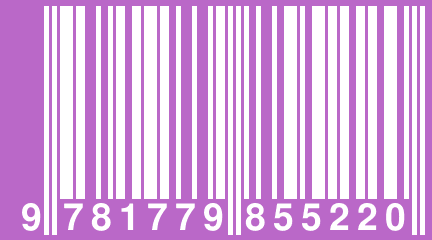
Women’s Day
Thelma Mhlari
Khanyisa Masemola

English
Longer paragraphs
——
In South Africa, the 9th of August is a public holiday. It is National Women’s Day.
-
This storybook is about the history of that day, and why it is still important today.1
Lerato and Khanyisa are walking to their local library after school. They are going to do their homework.
-
“What are you doing today?” asks Khanyisa.-
Lerato replies, “I’ve got to find out about Women’s Day. Probably some boring history.”2
“Are you serious? That’s not boring!” says Khanyisa.
-
She continues, “Our teacher gave us that assignment last term. I also thought it would be boring. But let me tell you what I learned about Women’s Day!”-
“I’m listening!” responds Lerato.3
“It was back in 1950s South Africa, around the start of apartheid,” begins Khanyisa.
-
“The apartheid government wanted to make all black people carry a ‘pass’, an ID document.-
The colonial government had already started a pass system. Black people could not move around freely.”4
“From as early as 1912, women had been protesting about a pass system in South Africa.
-
In 1913, A group of women, led by Charlotte Maxeke, burned their passes in front of municipal offices. They fought with the police!”5
“From colonial government to apartheid government, things went from bad to worse,” says Khanyisa.
-
“So, can you fast forward to what happened on 9th August 1956?” says Lerato as they arrive at the library.-
“You should appreciate my knowledge of history!” says Khanyisa.6
In the library, they sit down at a corner table. Khanyisa continues in a whisper.
-
“By the 1950s, the impact of apartheid laws was making life worse for black people.-
Life was especially bad for black women. And they protested!” says Khanyisa, speaking louder.7
“In 1956, South African women organised a big march against new pass laws being introduced for women.
-
The march was organised for the 9 August.-
Black and white women from across the country came to Pretoria for the Women’s March to the Union Buildings.”8
“It was a beautiful day! About 20,000 women joined the march.
-
Leading the march were Lillian Ngoyi, Sophia Williams, Helen Joseph, Rahima Moosa, and Bertha Gxowa. Everyone was disciplined and determined.-
They took thousands of petitions to the government. The petitions were against the pass laws.”9
“Well, what happened next?” asks Lerato.
-
“They stood and waited for the prime minister. They stood in silence for 30 minutes, waiting.-
Twenty thousand women, it was powerful! He did not come to meet them,” answers Khanyisa.-
“Coward!” hisses Lerato.-
“Then, the women started singing,” says Khanyisa.10
“Standing together, the women knew the power of their voices, as well as the power of their silence,” explains Khanyisa.
-
“They sang, ‘Wathinta abafazi, Wathint’ imbokodo, Uzakufa!’-
‘You have struck a woman, You have struck a rock, You will be crushed!’”11
“The Women’s March is an important protest in our history.
-
After democracy, the 9th August became public holiday, a day when we honour women and celebrate women’s roles in society.-
We can celebrate that women have more rights now than in the past,” concludes Khanyisa.12
Lerato says, “Wow, you must have got an A for that assignment?!”
-
“Yes, I was inspired by the many amazing and powerful women in our history. Their courage and achievements are inspiring!” replies Khanyisa.-
She adds, “Lerato, you and I can be those women of the future!”13
——Questions
- Why were women protesting in 1956?
- How were they protesting?
- Who were the leaders of the march?
- Find out more about any of these women.
- What are women’s roles in society? What are men’s roles? Explain why you think so.
- Find out about any three famous women in the world. What makes them famous?
- Explain why there is strength in unity.
- What are some of the challenges that women face in South Africa?
14
——Books in this series
- Freedom Day
- Heritage Day
- Human Rights Day
- Reconciliation Day
- Women's Day
- Workers' Day
- Youth Day
15
——
This story was created and written as part of the Zenex Ulwazi Lwethu reading materials project in 2020.
16

Attribution CC BY

Your attribution should include the following:
Title: Women’s Day
Author/s: Thelma Mhlari
Translator/s: Thelma Mhlari
Illustrator/s: Khanyisa Masemola
Assurer/s: African Storybook
Language: English
© Zenex Foundation - Saide 2025
Title: Women’s Day
Author/s: Thelma Mhlari
Translator/s: Thelma Mhlari
Illustrator/s: Khanyisa Masemola
Assurer/s: African Storybook
Language: English
© Zenex Foundation - Saide 2025
CC BY includes the following elements:
BY – Credit must be given to the creator
– Credit must be given to the creator
BY
 – Credit must be given to the creator
– Credit must be given to the creator